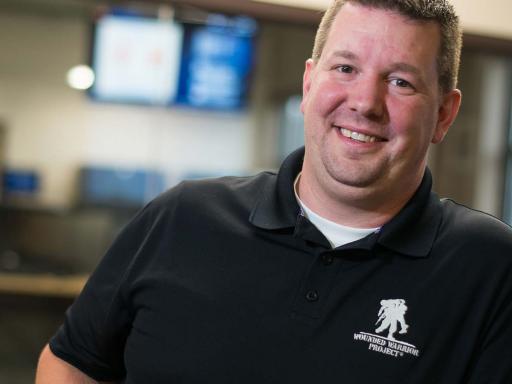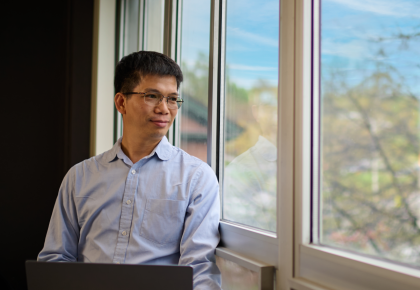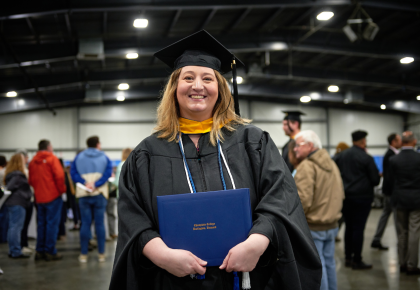CMIT-135
Explore Computer Science
Are you a passionate problem solver interested in unlocking limitless opportunities in the ever-evolving field of information technology? Designed to equip you with theoretical knowledge and skills, this 100% online bachelor’s in computer science combines foundational courses in mathematics and programming with core courses in computer architecture, data structures and algorithms, and systems administration. This comprehensive computer science degree curriculum also includes courses on emerging technologies like Blockchain and Quantum Computing, and advanced computer science courses on programming paradigms, compilers, and computational logic so you’ll have the skills and knowledge necessary to design, develop, and implement innovative solutions to complex computational problems.
Finish your program faster with credit for prior learning and experience.
Differentiate your degree and get your resume noticed with an added certificate. Speak with your advisor for information.
Unlock Your Potential
An online bachelor’s degree in computer science can prepare you to help shape the future of computing and technology. Graduates are positioned for careers and to continue their studies in software engineering, data science, cybersecurity, and artificial intelligence.
Program Curriculum
Champlain's online computer science courses encompass the top skills needed by today's IT professionals. Graduates of the program are required to complete the following courses.
Professional Courses (54 credits)
Technical Electives (9 credits)
General Education Courses (42 credits)
General Electives (15 credits required)
Note: Some of the courses in this program are available in 15-week terms only. Please contact your advisor for details and information on how this may impact your time to completion.
From day one, students in this course are problem solving, first in terms of algorithmic design and then as early as week two via programming in the latest version of Python, using PyCharm. Students begin by writing a program to have a conversation, having strings and numbers as input, and advance, by week seven, to building a working password saver program, capable of looking up, adding (and encrypting), and storing passwords.
This course, through guided research and hands-on learning experiences, provides students with an understanding of operating systems, including their core fundamental principles and how they work. Students are introduced to the three most popular operating systems for personal computers (Windows, OSX and Linux), and mobile operating systems, and learn about standard functions such as memory, process/thread, input/output, storage and device management.
Learn the basics and more in this course on Relational Database Management Systems (RDBMS) and SQL (Structured Query Language). Students propose a final project in the first module and then work, week-by-week, to design, create, and populate the database. Then, students learn to create queries and stored procedures.
Blockchain technologies used in distributed environments can improve security. In this course, students will learn blockchain basics: the structure of blockchain, the role of cryptography, consensus mechanisms and their roles, and blockchain forks types and classification. Students will also identify how blockchain technologies are currently being utilized by various industries, and be introduced to smart contracts as well as how blocks are mined.
Prerequisites
Quantum computing is changing the way we process information. In this course, students learn to distinguish quantum computing from classical computing, and are introduced to the fundamentals of quantum computing, including gates, circuits, algorithms and error correction. Students also consider the impact of quantum computing on software development, and current and future uses for the technology.
Students are presented with the opportunity to expand and showcase their knowledge and abilities in this 15-week course where they are expected to work independently and develop a project related to their major.
Prerequisites
Must complete 90 credits in major before taking this course.
In this course, students will explore advanced programming paradigms beyond procedural and object-oriented programming. Students will learn about functional programming, logic programming, and other paradigms, and apply the concepts to practical programming problems. Topics include lambda calculus, lazy evaluation, recursion, and parallelism. The course emphasizes abstraction, modularity, and correctness.
Prerequisites
Complete (SDEV-340 - C++ Programming II or CMIT-235 - Advanced Python) AND SDEV-345-Data Structures & Algorithms AND MATH-160- Logic and Probability
In the Computational Logic course, designed for students pursuing a BS in Computer Science, students learn formal methods for reasoning about programs, covering propositional and predicate logic, as well as proof techniques and automated reasoning tools. Students will learn how to model problems and construct logical arguments, and explore how logic can be applied to software engineering and artificial intelligence. Through hands-on work, students will develop skills in formal reasoning and problem-solving
Prerequisites
SDEV-340 C++ Programming II OR CMIT-235 Advanced Python. AND MATH-270 Discrete Mathematics
In this course, students will learn about the various stages of a compiler, including lexical analysis, parsing, semantic analysis, optimization, and code generation, focusing on the translation of high-level programming languages into executable code. Students will also study common compiler data structures and algorithms, such as abstract syntax trees and register allocation. In addition, students will gain practical experience by implementing a compiler for a simple programming language.
Prerequisites
Complete (SDEV-340 - C++ Programming II or CMIT-235 - Advanced Python) AND SDEV-345-Data Structures & Algorithms
This course covers the fundamental concepts of linear algebra and analytical geometry, including matrices, vectors, linear transformations, and systems of linear equations. Students will also explore the analytical geometry of Euclidean spaces, including lines, planes, circles, spheres, and conic sections. In this course, students will develop their mathematical reasoning skills and learn how to apply these principles to solve real-world problems.
Students will explore foundational concepts of calculus as they investigate limits, derivatives, and integrals, applying the product, quotient, and chain rules for differentiation and integration to algebraic, exponential, logarithmic, and trigonometric functions. Through problem-solving and real-world applications, students will analyze and optimize functions, sketch curves, and compute areas under graphs for both definite and indefinite integrals, and integrate by substitution and by parts.
This course introduces foundational concepts in discrete mathematics. Students will explore set theory, logic, and Boolean algebra, apply proof techniques like induction, and solve combinatorics problems using permutations and combinations. The course emphasizes graph theory, including trees, Euler and Hamilton paths, and algorithms, and examines functions and growth measures such as Big-O notation to develop critical problem-solving skills.
Prerequisites
Complete MATH-210
A hands-on course covering key components of the Linux operating system. Through hands-on activities students will gain a working knowledge of the Linux operating system. Topics include installation and configuration of Linux, using common commands and graphical interfaces, installing common server applications, User and group account management, as well as performance monitoring and security systems.
Prerequisites
CMIT-140
We will extend coverage of topics in NETW 260 Linux System Administration I in order to provide students with the skills they need to deploy, configure and maintain secure Linux servers within the enterprise infrastructure. Many of the topics will provide in-depth coverage of topics including Apache Web Server, SAMBA, NFS, scripting, secure implementations, DNS, DHCP, and, user administration. Extensive lab exercises in a multi-server virtual machine environment will help students put their new skills into practice.
Prerequisites
NETW-260
This course will introduce students to programming concepts, using a major industry programming language, C++. SDEV-240 covers the history of programming languages, the essentials of the C++ programming language, and how to write effective and efficient programs to solve a variety of real-world problems.
Prerequisites
CMIT-135
In Computer Architecture and Assembly, students learn how computing systems execute instructions at the machine level, how they manage different memory levels, how co-processors interact, and how different programming choices influence execution time. Students learn how to program with MIPS Assembly, a RISK-architecture Assembly Language, and use it to bridge theory with practice.
Prerequisites
SDEV-240
The focus of this course is to cover the robust and powerful features of C++ and Object Oriented Programming. These skills will serve as a foundation to transit to develop Client/Server, Database driven applications and simulations.
Prerequisites
SDEV-240
In this course, students will learn about correct, efficient data structures and algorithms, and how to design, analyze, and implement them in software applications. Various abstract data types including linked lists, stacks, queues, and trees will be covered in detail. Algorithms for searching, sorting, and implementing data structures will be examined using diagrams, animations, pseudocode, and C++ code.
Prerequisites
SDEV-340, MATH270
In addition to the following requirements, students must also complete 3 Credits of a General Education Elective (Any ARTS, COMM, CRIT, ECON, ENGL, HIST, MATH, PHIL, PSYC, SCIE, SOCI, MKCM 120, CRIM except CRIM-225)
This course introduces students to the foundational concepts needed to communicate effectively in writing for academic study and professional development. Students will also learn to read critically to evaluate an author's message. Students will be introduced to rhetorical modes and their role in the development of written communication. Students will also learn how to use revision strategies to create written communication that meets its intended purpose for its intended audience
This course builds on students' proficiency in the writing process and rhetorical modes to introduce the use of sources in written communication. Students will practice information literacy as they learn to determine information needs from sources, develop effective search strategies, and incorporate sources in written communication, legally and ethically.
Prerequisites
Complete ENGL-100
Starting with a frame of human communication as a dynamic system of interactions in which people make choices that impact their relationships, other people, and themselves, students will define theory-informed communication concepts and processes, and critically examine how they apply to everyday life across a variety of contexts. Students will reflect on how the theory, concepts and processes apply to their own lives in becoming competent communicators who are knowledgeable, skilled, and versatile.
This course examines the principles of effective small group interaction. Students will analyze group development stages and small group roles. They will identify and evaluate communication skills that enhance small group cohesion and problem-solving. Students will explain how conflict affects group processes and compare face-to-face versus digital collaboration environments. These skills prepare students to participate effectively in group settings across academic, professional, and community contexts.
Students will learn and apply critical inquiry skills to analyze persuasive communication created by others and to develop persuasive communication/arguments of their own to solve problems in professional, civic, social, and personal contexts. Specifically, students will learn to recognize fallacies in logic; apply inductive and deductive reasoning strategies to the interpretation and development of persuasive communication; evaluate the validity of sources; and develop logically sound persuasive communication. Students will explore the roles of self-awareness, empathy, and ethics in the context of critical inquiry and the development of arguments.
Prerequisites
Complete ENGL-110.
This course is an historical overview, and examination of the evolution of digital, film, and print media, and their functions. Students will identify and analyze contemporary problems of the media such as the legal, social, economic and psychological implications of their relationships with society. They also will examine the ways in which marketing and PR professionals utilize the mass media channels to reach their intended target audiences.
This course explores the complex and evolving relationship between human beings and technology. Through a multi-disciplinary approach that draws on fields such as sociology, psychology, philosophy, and history, students will examine the ways in which technology has shaped human culture, identity, and values, as well as how humans have influenced and continue to influence the development, adoption and use of technology.
Mathematical reasoning, when applied to everyday and professional lives, has two dimensions: logic for deterministic situations and probabilities for non-deterministic situations. This course aims to help students develop these mathematical reasoning skills.
This course introduces students to basic statistics for data literacy. With a focus on exploring real-world data, students will interpret numerical information and utilize the tools necessary to complete the entire statistical process: designing a study; gathering, organizing, and analyzing sample data; and making inferences about a population. Students will demonstrate data-driven decision-making and effective communication of numerical data.
In this course, students will gain an introduction to classical mechanics and learn about motion, force, energy, and momentum. The course covers vectors, scalars, and coordinate systems, as well as kinematics in one and two dimensions, Newton's Laws of Motion, circular motion, and kinetic energy and work. Students also learn about potential energy and energy conservation, collision theory, rotational motion, moment of inertia, torque, rotational dynamics, and angular momentum.
This course will introduce students to major streams of social justice thought, including historical social justice movements, theoretical problems having to do with social equality, personal freedom, marginalization, and stigmatization, and the ways in which civic and professional communities respond to these issues.
With pressure and release, a window opens and closes, recording light on a sensor. The simple action captures the instinct, judgement, and skill of the person behind the lens. This class will begin a study of the art and craft of photography. Students will develop their vision and their understanding of how to achieve it. Solid skills will be learned and many doors will be opened.
A survey of the continuing change experienced in art since the 15th century. Students will examine how an image is achieved as well as the significance of the subject represented. Individual inquiry concerning the nature of art is encouraged.
Students learn to appreciate films through the critical analysis of various elements of mise-en-scene, cinematography, editing and sound. The course introduces the conventions of classical Hollywood cinema, considers the work of one major director (auteur), and surveys selected international and independent films. Students view and discuss films each week.
Students in the course will explore the cultural history of the music genre broadly referred to as rock. Students will explore the social, economic and political contexts that are influenced by and that influenced each style in the United States. By listening, watching, reflecting upon, discussing and writing, students will explore how music takes on meaning, personally, and culturally. Topics and themes include the relationships between and among gospel, country, funk, folk, disco, rap and hip hop; the role of business and technology in those relationships, and political or transgressive elements of rock music.
Specific application of common tools for writing in the working world. Students will be instructed in rhetorical strategies of professional writing including style, report formats, editing, document design, and integration of visual aids. Students will complete a semester-long writing project; oral and written reports associated with the process of problem-solving within the project will be included.
Prerequisites
ENGL-112 or COR-125
Students will learn how to create conditions for successful conflict engagement, a necessary skill for any professional. The course focuses on the foundational capacities to remain calm and connected with oneself and others. In this state students can access helpful ideas and responses and be their best selves regardless of environment. Improving facility for conflict creates stronger relationships and reduces fear. By the end of the course, students will understand that disagreement and difference can become a source of personal and interpersonal growth.
In this course, students will explore and apply writing principles and techniques to effectively interpret and write technical workplace materials. Students will enhance and gain skills to communicate business and technical information by producing instructions, describing processes, applying document design elements, creating and integrating illustrations, researching and writing proposals and formal reports, and presenting content for decision-makers.
This course introduces students to the fundamentals of substantive criminal law. With this foundation for understanding the legal system students will identify the essential elements of crimes, including the criminal act, criminal state of mind, and jurisdiction. They will examine the rationale underlying criminal law, factors affecting criminal responsibility, and legal defenses. By analyzing real-world scenarios, students will develop skills to distinguish lawful from unlawful actions and prepare for advanced studies or careers in criminal justice.
This course focuses on the rules and procedures governing how the American criminal justice system must process individuals suspected, accused, and convicted of law violations.
In this course, students will explore the theory and fundamentals of criminal investigation, emphasizing practical applications for evidence handling and case development. Students will review basic responsibilities of investigators and protocols for report writing, evidence collection, and preparation of cases for trial. The curriculum examines investigative approaches for various crime categories, including violent offenses, property crimes, terrorism, and hate crimes, while introducing comparative perspectives from diverse legal systems.
Prerequisites
Take CRIM-120.
Principles of Economics introduces the fundamental concepts of economics - the study of how people manage resources, and how they react to scarcity. This course focuses on both microeconomics (the behavior of consumers and companies) and macroeconomics (large-scale economic factors such as employment and interest rates), so that you'll gain a broad understanding of how a modern market economy functions, how decisions in business settings are informed by economics, and how economics applies to your everyday life.
Students will study important themes in the social history of the United States since the Civil War. This course allows students to expand their critical thinking skills through an examination of primary and secondary sources. Themes might include: the evolving status of women; the immigrant experience; the concept of the American dream; the paradox of freedom vs. slavery; the minority experience; the tensions between social classes. Students will be evaluated primarily on writing assignments.
In this course, students will explore broad, foundational knowledge in psychology, including its history, major theorists and a survey of psychology subfields such as developmental, cognitive and social psychology. Students will also describe and assess the role of ethics and social responsibility in the study and application of psychological theory and practices.
In this class, students will explore how social relationships, groups, societies and culture develop and change over time. From a sociological theory foundation and employing the sociological imagination, students will examine the impact of social structures, institutions, and systems on individual lives. Students will apply sociological research methods to investigate sociological phenomena in their own lives.
Additional Program Details
Graduates of the computer science bachelor's online program will acquire and demonstrate the following industry-specific skills, knowledge, and competencies:
- Analyze complex computational problems using mathematical and logical reasoning to develop innovative solutions
- Develop proficiency in multiple programming languages, and apply programming paradigms, such as object-oriented, functional, and logic programming, to solve computational problems in various domains.
- Evaluate, select, design, and implement appropriate and efficient algorithms and data structures.
- Analyze and optimize computer systems, leveraging knowledge of computer organization and architecture.
- Communicate effectively with technical and non-technical audiences, using appropriate modes of communication, to convey complex computing concepts and solutions.
Design your own degree and enhance its value and focus by adding a certificate. Adding a certificate allows you to develop specialized skills, strengthen your résumé, and tailor your education to align with career goals. Choose from the undergraduate or graduate certificates on this page.
Note: To earn a certificate, you must speak with your advisor first. You must be officially enrolled in the certificate program before you complete the required courses in it — coursework completed prior to enrollment cannot be applied later, and certificates may not be added retroactively. Careful planning with an advisor is essential to ensure all policies and timelines are met.
Our admissions team seeks to admit students who:
- Demonstrate a solid academic foundation - a minimum 2.5 GPA is our recommendation, though exceptions may be made on a case-by-case basis for those who demonstrate a potential for academic success in other ways.
- Possess an aptitude for success in an online learning environment.
- Exhibit the ability to make a positive contribution to the Champlain College Online community.
To learn more about submitting transcripts, or requirements for home-schooled students, those educated abroad or returning students visit our Undergraduate Admissions page.
Our transfer credit evaluation team works hard to ensure you get the transfer credits you deserve, from a variety of sources including prior college credits, work experience and training, military training and experience, and more. Our goal is to help you graduate from Champlain College Online as quickly and affordably as possible. Visit our Transfer Credit Options page to learn more.
Champlain College Online's computer science faculty, led by Department Chair Richard Pickering, are expert practitioners in the field. Their industry expertise ensures that our curriculum is aligned with the needs of employers, and reflects the skills today’s IT systems professionals need for success. Classes led by our seasoned experts will give you real-world insight into the world of information technology, and create a rich community of career-focused learning.
Tuition & Costs
Online Undergraduate Tuition Fall '25 - Summer '26
Tuition & Costs
Online Undergraduate Tuition Fall '26 - Summer '27
* Alumni is defined, for this tuition rate, as any degree program graduate from Champlain College or Champlain College Online.
** Veteran rate effective Spring 2025, not retroactive
See the undergraduate cost of attendance and fees here
Affordability and Paying For Your Education
We provide a number of options to make your online education affordable, including preferred tuition for alumni, associate degree graduates, community college graduates, and military.
What Can I Do With a Bachelor's Degree in Computer Science?
The computer systems and information technology industry is rapidly growing and shifting. The Bureau of Labor Statistics (BLS) predicts that employment in computer and information technology jobs will increase by 15% between 2021 and 2031, creating approximately 682,800 new jobs. This growth is significantly higher than the average rate for all occupations.
As older generations retire or leave the industry, an additional 418,500 job openings will become available each year. With a bachelor’s degree in computer science from Champlain College Online, you will gain the necessary skills to enter the rapidly expanding technology field and work in positions including software development and computer programming.
Potential Career Fields
- Computer Support Specialist
- Network & Computer Systems Administrator
- Computer Systems Analyst
- Database Administrators & Architect
- QA Analyst & Tester

Why Champlain
Flexibility
"I chose Champlain because it gave me the flexibility I needed. The accelerated format offers a great way to reach your goals faster, and makes earning your degree or certificate a realistic achievement that truly is obtainable."
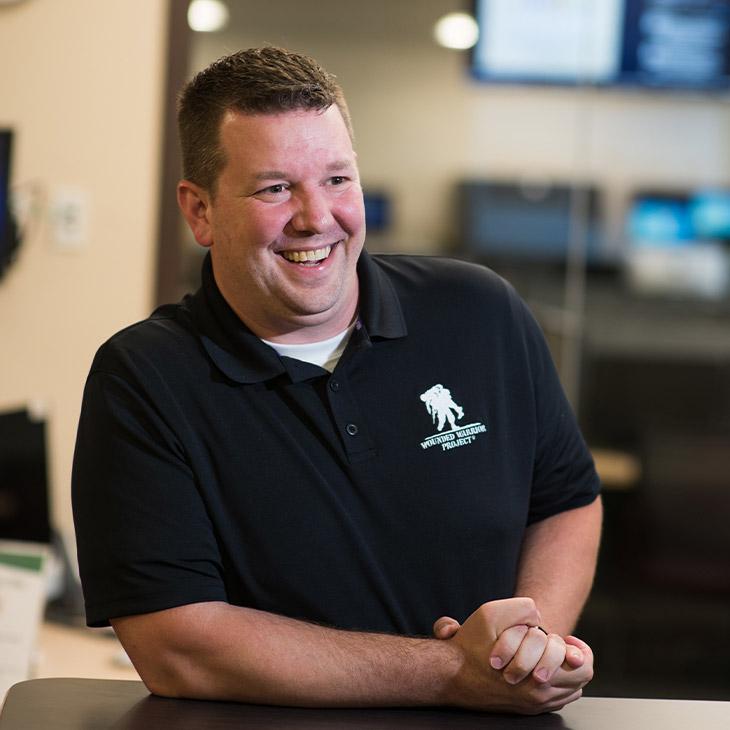
Academic Excellence and Recognition
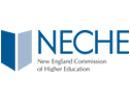
Regionally accredited by the New England Commission of Higher Education
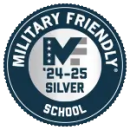
Designated as a Military Friendly School for our commitment to the military community
Ranked among the best by Tech Guide for game design and computer science
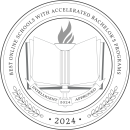
Named the among the best schools with accelerated bachelor's degrees by Intelligent.com
Meet the Program Director
Daniel Selicaro, MS
- Computer Science (BS)
- Software Development (AS, BS)
- Web Design & Development (AS, BS)
- Software Engineering and Project Management (MS)
About
Daniel Selicaro is an Assistant Professor and Program Director for Technology at Champlain College Online. He oversees bachelor degree programs for Software Development, Web Design and Development, and Computer Science, as well as the graduate program in Software Engineering and Project Management.
Dan has been at Champlain College since 2007, and has been teaching web design and development for Champlain since 2015. He began his career in print journalism as a newspaper reporter, and was the news editor for Upside magazine and the Red Herring magazine in California. After moving back to the East Coast, he worked on digital marketing at Champlain College, and was an active part of two redevelopments of the College website, champlain.edu, before he took a role in the Information Systems department.
Outside of Champlain, Dan runs his own website development company, and is on the board of directors for several local organizations — including as marketing chair at the Fellowship of the Wheel mountain biking club, the Green Mountain Montessori School, and the Essex United Soccer Club. He is an avid mountain biker, and loves to spend his time adventuring in Vermont with his two young children.
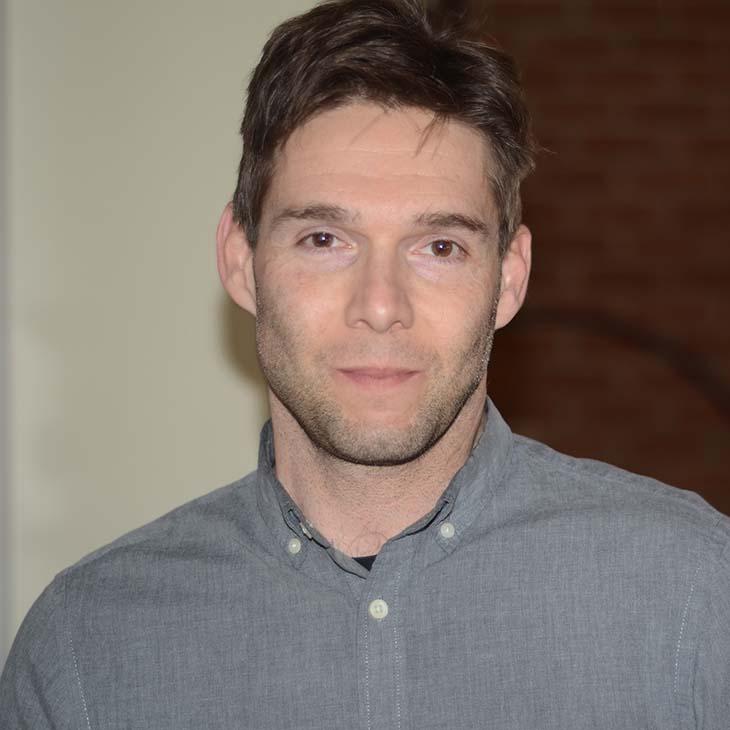
Frequently Asked Questions
Computer science is the study of computers, algorithms, and programming, focusing on software development, data structures, artificial intelligence, and cybersecurity. These essential areas are covered in a flexible learning setting through Champlain College’s fully online BS in Computer Science.
Yes, computer science involves math, including logic, algebra, discrete mathematics, and algorithms, but the level depends on your focus area (e.g., AI and cryptography require more math than web development). Champlain College’s BS in Computer Science gives you the conceptual and applied learning you need across mathematics to help you excel in the computer science field.
Yes, an online computer science degree is worth it if you want flexibility, strong job prospects, and high earning potential, especially in fields like software development, AI, and cybersecurity. The BS in Computer Science at Champlain College gives you the technical competencies you need to compete in today’s computer science industry.
A computer science degree offers high job demand, strong earning potential, diverse career paths, problem-solving skills, and opportunities in tech fields like AI, cybersecurity, and software development. Champlain College offers a BS in Computer Science you can earn 100% online in less than four years.
Computer science focuses on theoretical concepts, algorithms, and computing principles, while software engineering applies these principles to design, develop, and maintain software systems. If you’re leaning toward a career in the computer science field, Champlain College offers a 100% online BS in Computer Science.
You May Also Be Interested In
Get Your Computer Science Program Guide
Learn what you can expect from our online bachelor's in computer science program.

Download Program Guide
I acknowledge that, by clicking the "submit" button, I am giving my express written consent to Champlain College and its representatives to contact me about educational opportunities via email, text, or phone, at the phone number above, including my mobile phone, using an automatic dialer, or pre-recorded message. Message and data rates may apply. I understand that my consent is not a requirement for enrollment, and I may withdraw my consent at any time.



